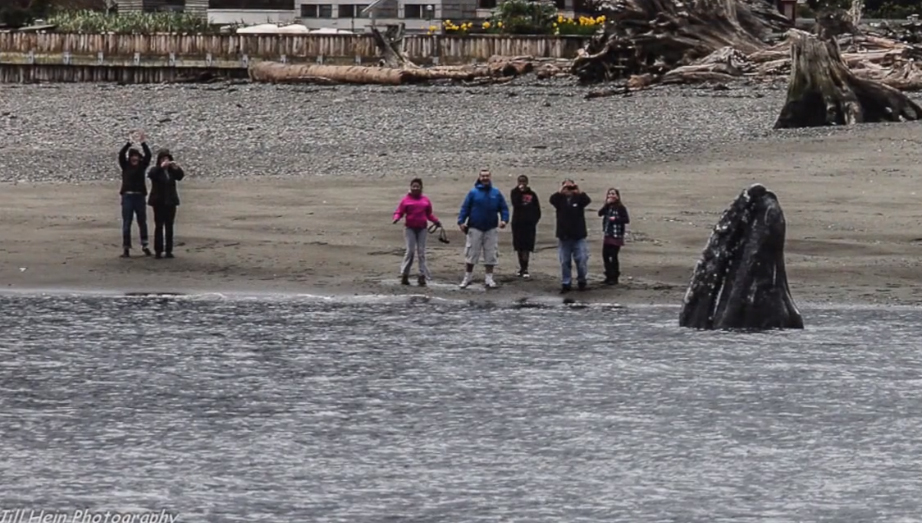We’ve got whales, and we get to celebrate them! Whale watching on Whidbey Island starts in March every year. You can join in the excitement and anticipation during the Welcome the Whales Parade and Festival in Langley. Even if the whales are busy elsewhere, it’s a good opportunity to have fun, hang out with friends, and join in the parade.
The event is inspired by the return of the migrating gray whales who come to feed on the ghost shrimp in the shallows off Whidbey, Camano and Hat Islands. Our waters also hold minke whales, fin whales, humpbacks, and of course, the orcas. Thanks to their tall dorsal fins, orcas are the easiest to spot. Add in porpoises and seals to make Puget Sound a world-wide destination for whale watching.
If you’re lucky, you’ll spot a whale or a pod from our beaches. That’s an excuse to ring the Whale Bell. Standing by the water in the spring can get a little chilly, which is one reason we worked with Village Pizzeria to install a whale cam at their waterfront restaurant. Sit at home and watch the water, and or drop by for a comfy window seat. You get dinner and a show!
The grays visit Langley for the fine dining on their long journey from Mexico to Alaska. While they are here, several boats will be operating from Langley’s marina and Everett. Thanks to the work of Orca Network (the organizers of the parade and the operators of the Whale Center), islanders and captains help track the whales.
Orca Network started as a fun way for locals to share their stories. It has grown to become a useful resource for marine biologists. The organization (which is largely funded by private donations) brings visibility to many kinds of whales. For the grays, it even conducts trips to the birthing lagoons in Mexico, and helps with other research organizations throughout the world.
Because of their regular visits, the gray whales off Whidbey, Camano and Hat Islands are one of the most studied whale species on the planet. Despite this, very little is known about them. We can see them eat, but there are debates about how they do it. They are magnificent enigmas, regardless.
You can watch episodes of our series Curious Islander for insights and perspective on our big wet neighbors.
